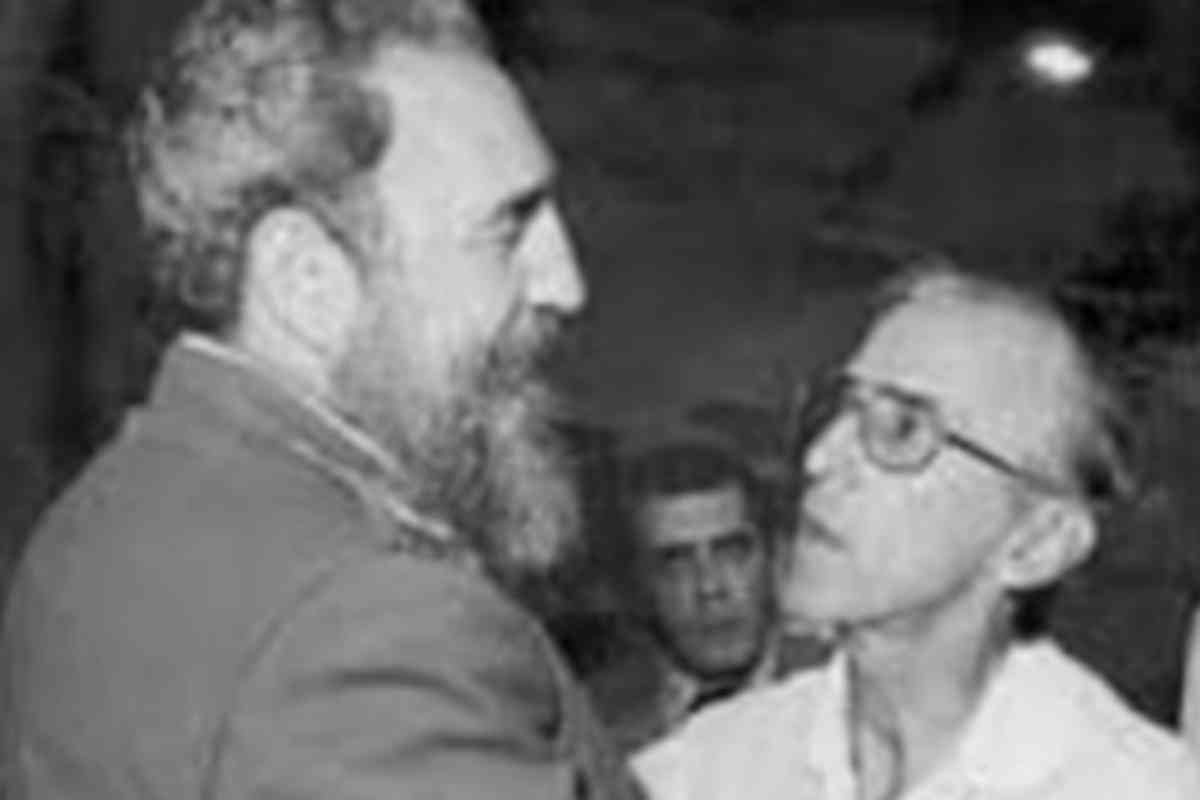- Procés.Ventura Pons: the pro-independence filmmaker (almost) ruined by showing only films in Catalan
- Childhood: Quim Torra: the self-marginalized and quiet student of the Jesuits
When on August 8 the death of Dom Pedro Casaldáliga, bishop emeritus of the Territorial Prelature of Sâo Felix do Araguaia (Brazil), was learned , TV3 interrupted its programming and altered the grid, in order to dedicate various programs to exalt the figure of the prelate. The fascination of Catalan nationalism for this bishop goes back a long way.
In 2006, the then president Pascual Maragall awarded him the first International Catalunya Prize, of 80,000 euros, and a sculptural work by Antoni Tapies. Both Puigdemont and Torra have praised it as a symbol of the role that the Church should have. Casaldáliga was for them the incarnation of the authentic kumbayá: a bishop without a staff, who did not reside in an episcopal palace, wore sandals, wrote pseudo-revolutionary poems, washed and hung his own clothes, and faced the rich and oppressors in defense of the rights of Indigenous. The youthful hero they never wanted to play. They neither put on sandals nor went to live in Mato Grosso. But they always had the aroma of camp fire, where Silvio Rodríguez's song was hummed to Che and poems by Casaldáliga were read.
However, that love was not reciprocated by Dom Pedro. After the start of his Brazilian mission, back in 1968, he refused to return to Catalonia, to the point that Maragall had to go to Sâo Felix to award him the award. But he not only refused to return, he also opposed blessing the Catalan independence process .
In 2017, in the midst of the maelstrom, he declared: "We are going to see what happens with independence. I would prefer that there was not. There are sensible people who are going to approach things differently. It is not a natural process. It does not make sense." Those words were silenced in the official Catalan media, which could not believe that the "bishop of the people" did not participate in the so-called "will of the people ". From his own village . And so the pressures on him began. Delegations were sent, visits were made to him, his sister and nieces were urged, television programs were dedicated to him, but Casaldáliga did not give his arm to twist. He never made a timid support.
Nor is it that Casaldáliga was an important bishop in Brazil. Pope Paul VI created the Territorial Prelature of Sâo Felix do Aragauia, in the north of the state of Mato Grosso, in 1971 and appointed the Catalan Claretian as the first bishop. In Brazil there are nine territorial prelatures, mostly in the Amazon rainforest, which is not the exact case of the one entrusted to the recently deceased bishop, which is in the pre-Amazonian part of the north of the state. This prelature is the smallest in number of souls of all the Brazilian prelatures.
The then-called Pere Casaldáliga arrived in 1968 as a missionary, after 16 years as a priest in Sabadell, Barcelona, Barbastro and Madrid. He was born into a traditional family in 1928, in the town of Balsareny, four kilometers from Sallent. Imbued with that closeness and by the tragic memory of religious persecution in the Civil War, which marked him very decisively in his words, he entered the Claretian order and was ordained a priest in 1952.
His traditionalism was mutating into a progressive Catholicism that led him to mission to the Araguaia region. There he ran into an indigenous people to become literate, with no other trade and benefit than the peonies provided by the large plantation landowners. Since then, Casaldáliga has been getting closer to Liberation Theology. He was the defender of the indigenous people in that pre-Amazon region. It did not bother the papacy much either: John Paul II (the great enemy of the Marxist priests) saw no impediment in keeping him as bishop, despite having been publicly embraced by Fidel Castro, and he was in his prelature for almost the entire pontificate of the Polish pope. . From 1971 to 2005.
His death had no repercussion in the Brazilian media. Not even Pope Francis has had a special memory for him. It is the manifest revelation that Casaldáliga was given more importance in Catalonia than in Brazil and the paradox that this nationalist love was never reciprocated by Dom Pedro.
According to the criteria of The Trust Project
Know moreSee links of interest
- Last minute
- TV programming
- Spanish translator
- 2020 calendar
- Horoscope today
- League classification
- Santander League Calendar
- Movies Today
- Topics

